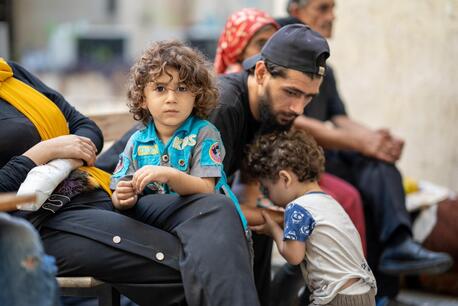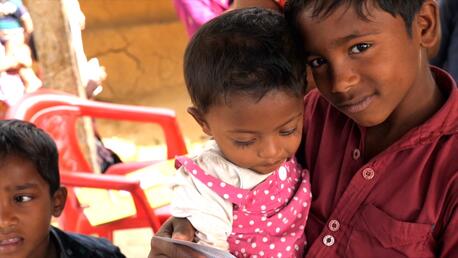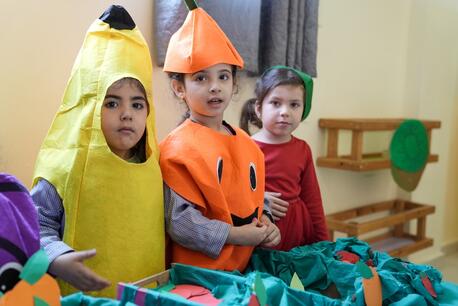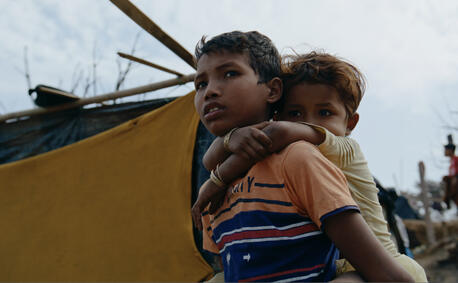
UNICEF in Bangladesh
UNICEF works with the government and other partners in Bangladesh to provide support and protection to children and families in need — including Rohingya refugees — while advancing longer-term solutions to climate, public health and other threats.
Poverty, climate change and other factors fueling humanitarian needs in Bangladesh
The people of Bangladesh continue to face the challenges of living in a country that is at high risk of climate-related disasters and also home to world's largest settlement of refugees.
Nearly one-quarter of all children in Bangladesh live in poverty, 13 percent in extreme poverty. Three-quarters of the nation’s poorest and most vulnerable households live outside the nation’s small social safety net.
Millions of Bangladeshi children – 82 percent of them boys – are forced to live on the streets, at great risk to their health, safety and future well-being. Many survive by waste collecting, begging, or by working in tea stalls, factories and workshops.
For girls in Bangladesh, despite progress in recent decades, the prevalence of child marriage remains among the highest in South Asia, with more than half of young women married before they turn 18.
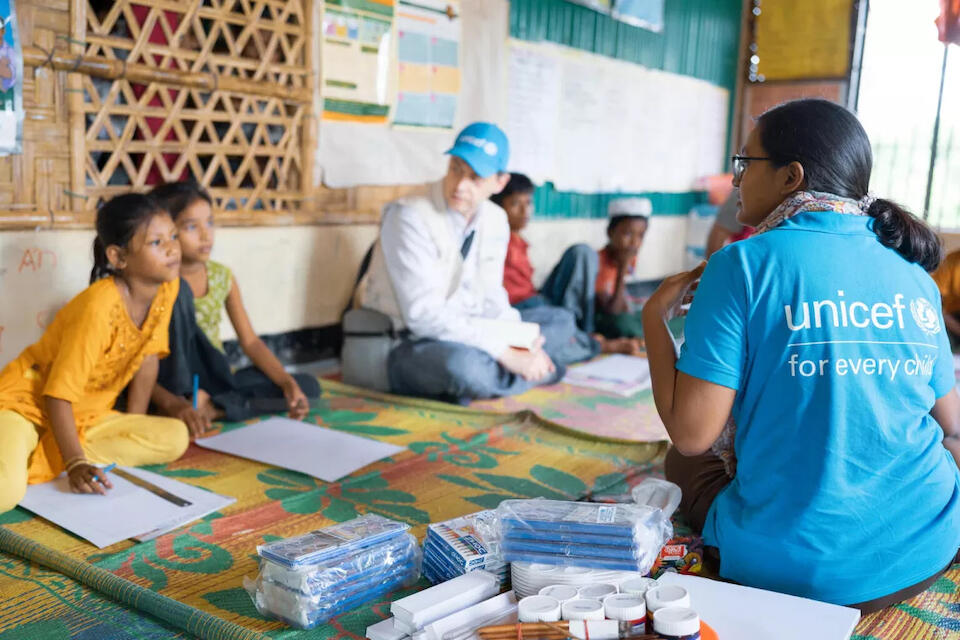
Extreme weather, severe flooding and other impacts of climate change have been particularly hard on the country. Cyclones have killed hundreds of thousands of people in recent years. Landslides, thunderstorms and extreme heat are all part of a growing problem.
When the northeastern part of the nation was hit in 2022 with the worst flooding in over a century, entire towns were submerged, farmland swept way and 7.3 million people, half of them children, were trapped in remote areas without electricity and basic supplies.
Climatic events are expected to continue to cause deaths, injuries and displacement of populations; damage to shelters constructed of bamboo and tarpaulins; and damage to public infrastructure, including water and sanitation systems, schools and health facilities.
UNICEF projects that 1 in 7 people in Bangladesh will be displaced by climate change impacts by 2050.
Amid regular outbreaks of diphtheria, measles, cholera and dengue, public health emergencies are a constant threat. In 2023, Bangladesh faced the worst outbreak of the dengue viral diseases in its history; all 64 districts in the country were affected, demonstrating the need for further investment in the public health system.
Home to the world's largest refugee settlement
There are more than 963,000 Rohingya refugees, more than half of them children, living in Bangladesh, most in camps in Cox's Bazar, a southeastern coastal area bordering Myanmar turned largest refugee settlement in the world. The vast majority are Rohingya who fled Myanmar in August 2017 to escape unspeakable violence, brutality and genocide.
The camps are overcrowded, conditions often dangerous. There is widespread malnutrition and an ever-present risk of violence and human trafficking.
How UNICEF is helping children and adolescents in Bangladesh
UNICEF has been working with the government and other local, national and international agency partners in Bangladesh to meet urgent and long-term needs of the most vulnerable children and families in Bangladesh since 1952.
As a parallel mission to the country-wide program, UNICEF has also maintained an active presence in the Rohingya refugee camps since the 2017 influx, and continues to provide lifesaving and life-sustaining assistance to hundreds of thousands of Rohingya children and their families.
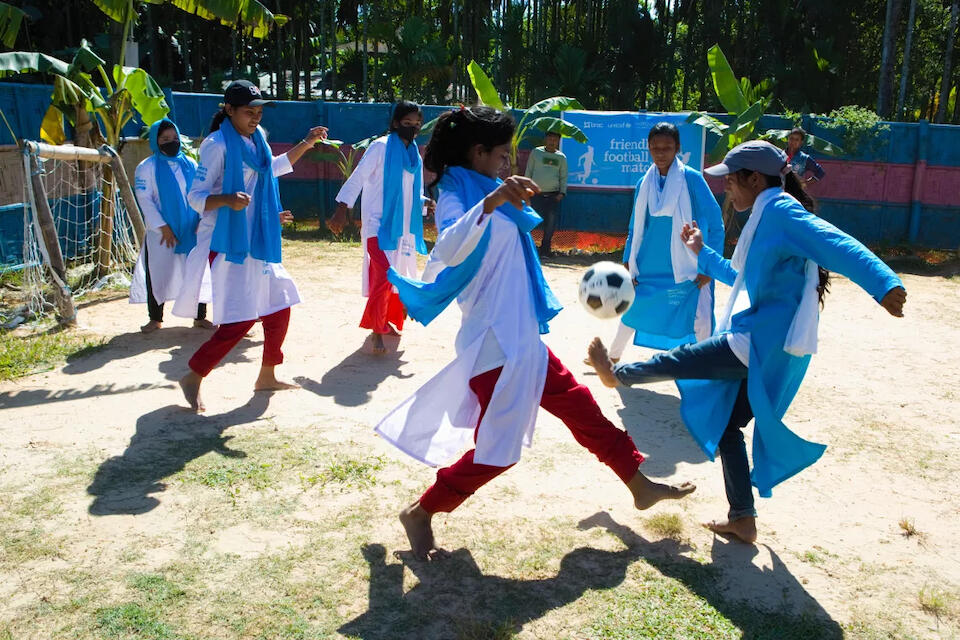
Interventions span all major program areas, including safe water and sanitation, health care, nutrition, education and protection.
While working to reach those most in need of critical support, UNICEF also continues to invest in system strengthening, community preparedness and resilience building and forging closer ties between humanitarian and development work.
Specific priorities include:
Health and nutrition
To improve maternal, newborn, child and adolescent health services, including immunizations, UNICEF is working with the government to improve the quality of care and to strengthen service delivery — including treatment for children suffering from severe acute malnutrition.
Education and skills building
To attenuate the long-term impacts of war and to help avoid a “lost generation,” UNICEF has focused on providing displaced children access to education — enrolling more than 300,000 children in classes in recent years — and creating a number of programs designed to train adolescents in the kind of technical skills that will ensure access to employment and a livelihood in the future.
Related: UNICEF-supported Skills4Girls program prepares young women for a better future
Climate resilience
UNICEF has been working with the government of Bangladesh and other partners to identify, prepare for, and mitigate the impact of natural disasters, by helping to improve the quality of essential services available in times of crisis – including uninterrupted access to a safe water supply and sanitation services.
Child protection
To assist children living without shelter or caregivers, UNICEF has established and helps support thousands of child protection services hubs in Bangladesh. These centers provide nutritious meals, showers, overnight accommodations and a space for kids to learn and play. There are also social workers and other volunteers standing by to help children in crisis.
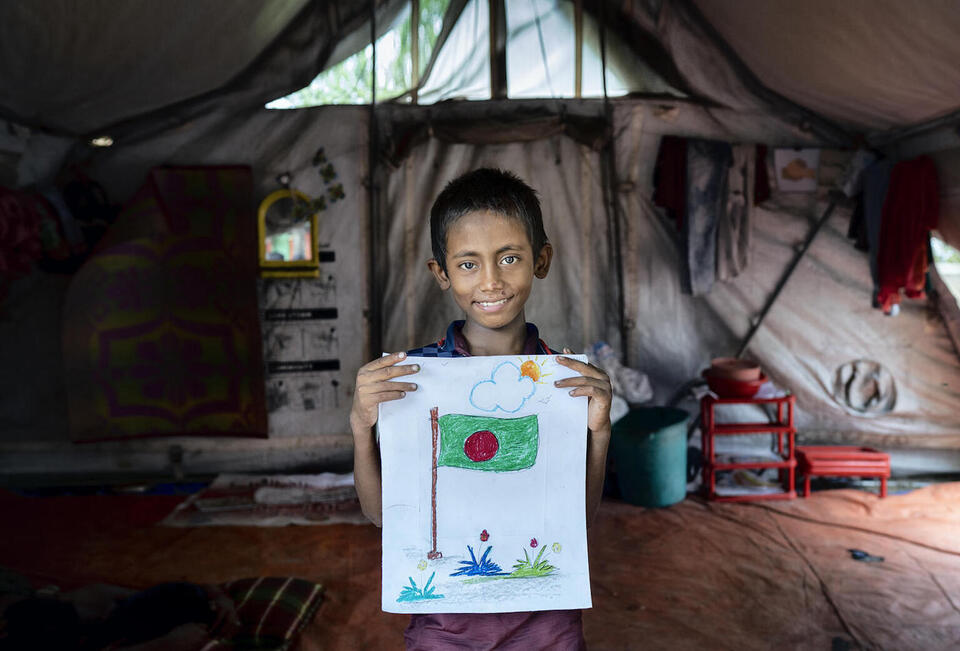
UNICEF is also working with the government to expand the number social workers available for case work. In rural areas, UNICEF’s goal is to place a social worker in every village to protect children from harm and to prevent children from ending up on the streets in in the first place.
In the refugee camps, UNICEF has worked with partners to develop community-based mechanisms for identifying vulnerable children in need of protection and to reach those children with services including psychosocial support.
UNICEF is also helping to train social workers in disaster-prone districts to improve gender-based violence prevention and response.
Tahmina's story
Much of UNICEF's impact for children and adolescents in Bangladesh (and around the world) is done in partnership with local authorities and groups, through community outreach and risk communication strategies.
Consider Tahmina, a 16-year-old girl from Ukhiya, Cox’s Bazar, who narrowly escaped being forced to drop out of school and get married. Her parents, lacking the funds to cover the school fees, began searching for a groom.
But then Tahmina found help through her local UNICEF-supported child protection community hub. A community volunteer at the hub connected the family to a local representative of the Ministry of Women and Children Affairs. The official went to Tahmina's parents’ house, where they discussed the risks and consequences of early marriage for girls.
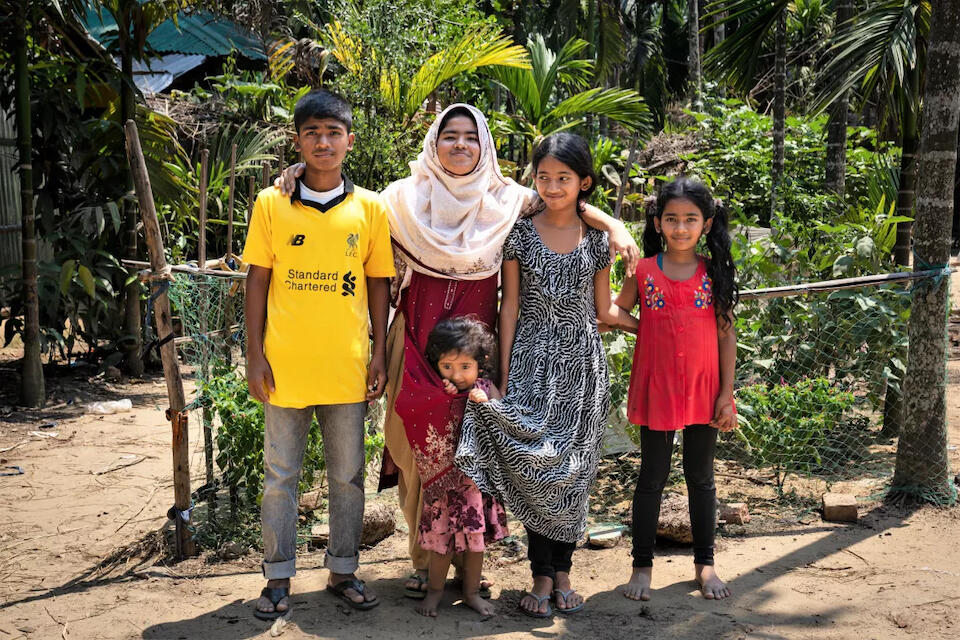
“I realized later that I was wrong – that child marriage is wrong,” says Tahmina's mother Arefa, who was herself a child bride at 13. “I decided to stop it before it was too late for Tahmina. I did not want her to get hurt forever.”
Today Tahmina is a peer leader at the protection hub. She talks to other children about child marriage and child labor to raise awareness of the long-term costs.
UNICEF depends on voluntary donations to achieve impact for children and adolescents in Bangladesh and around the world. Humanitarian support has declined for all but the most high-profile crises. Flexible funding allows UNICEF to meet critical needs whenever and wherever they are needed most. Donate today.
